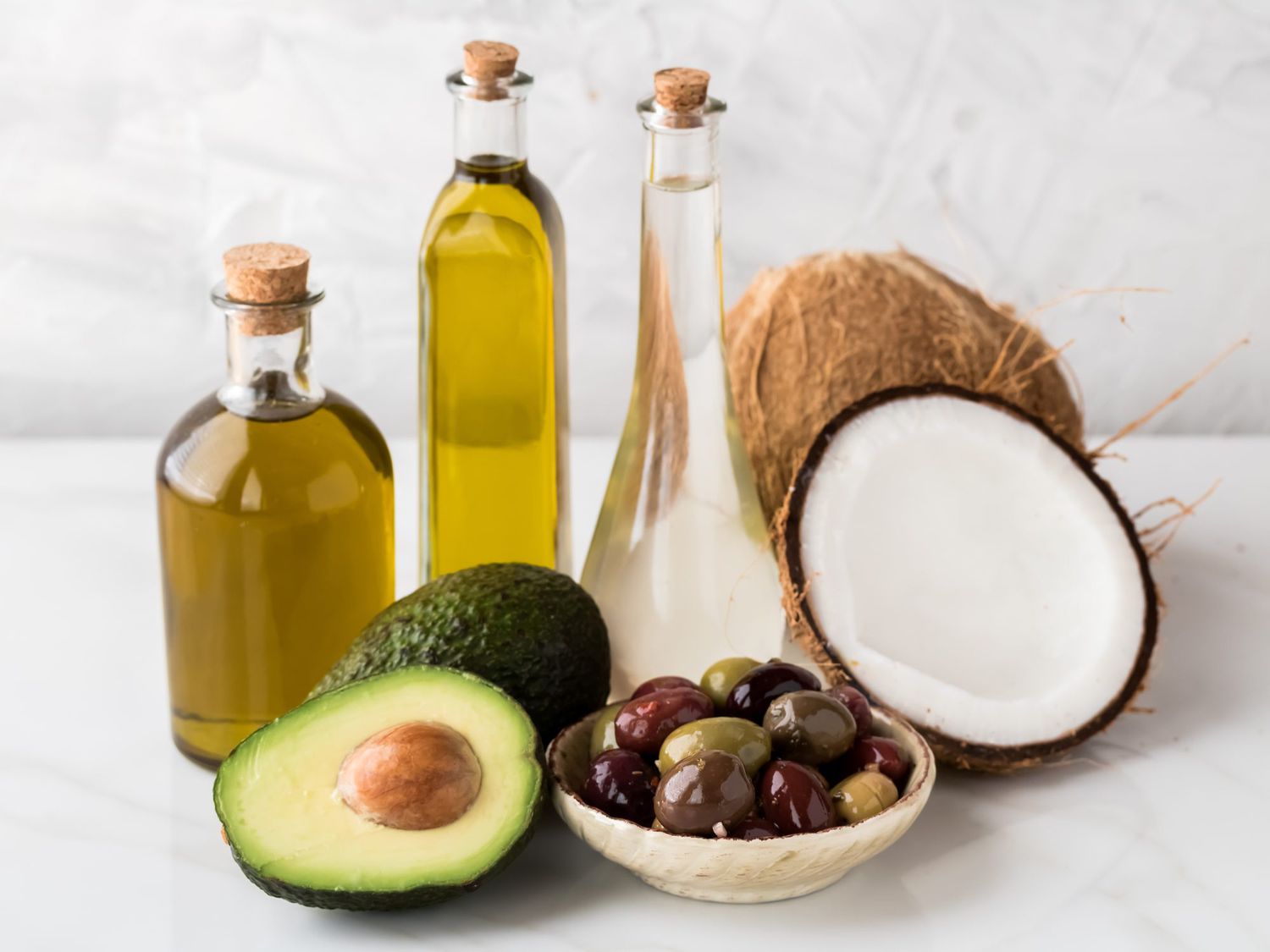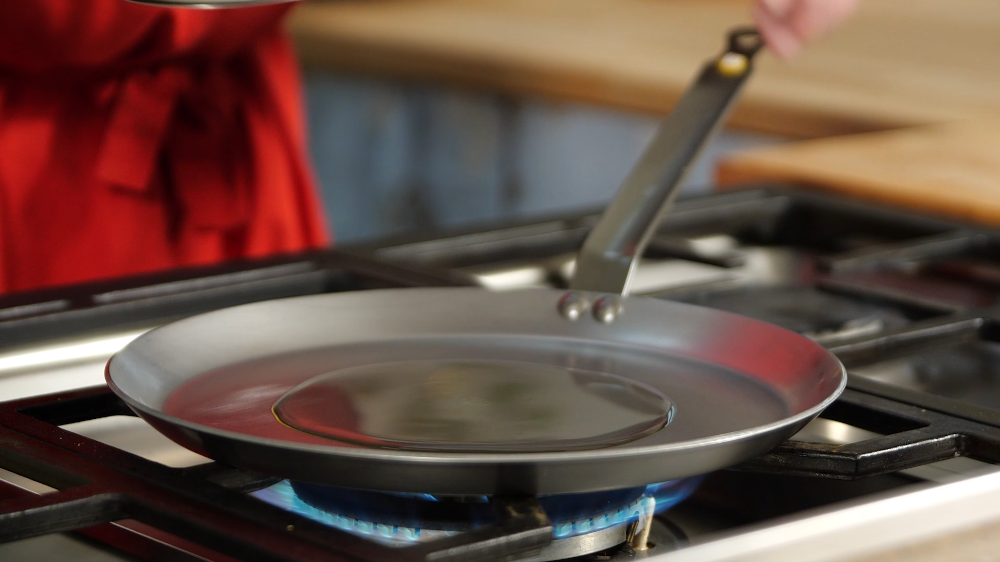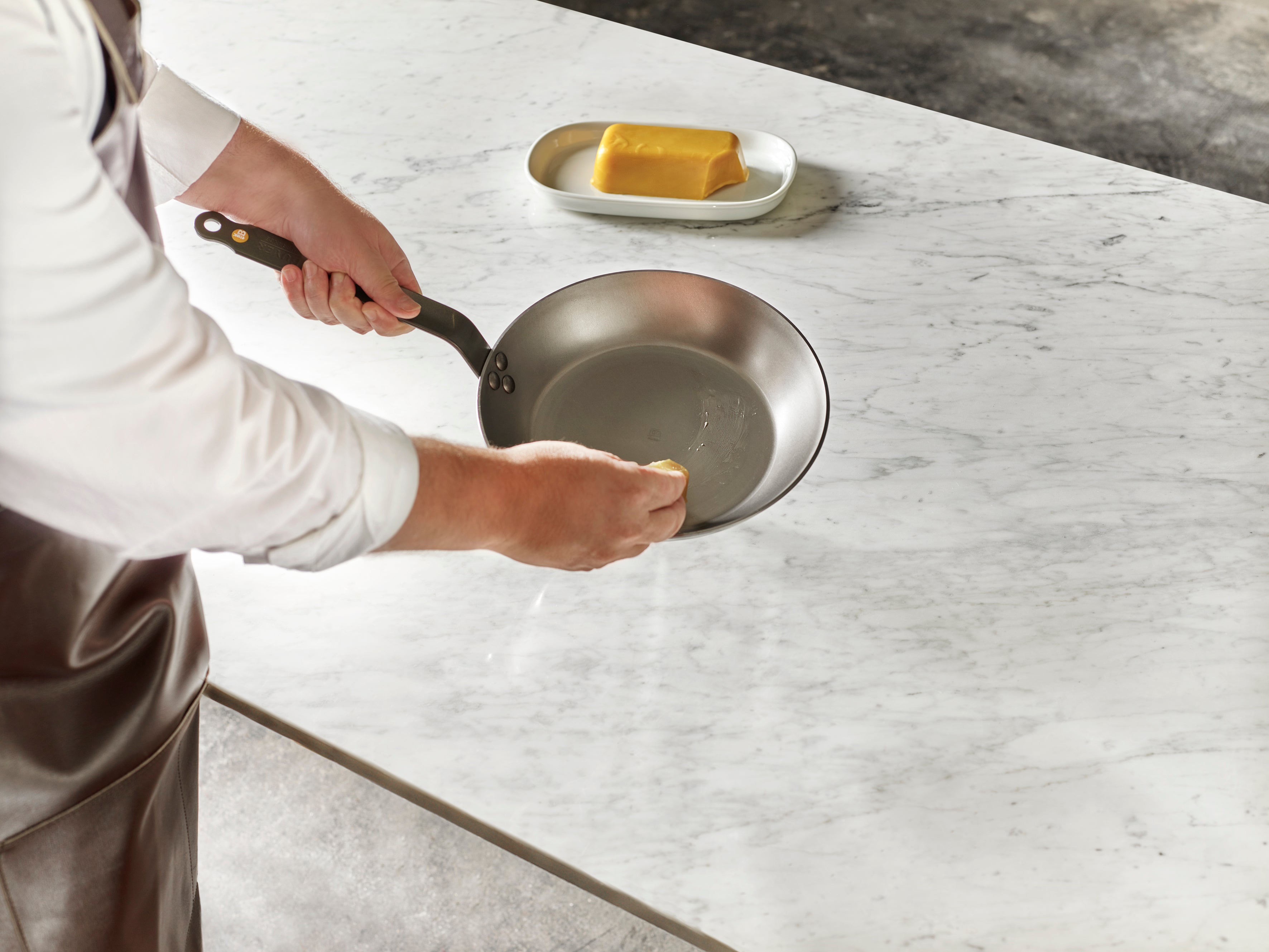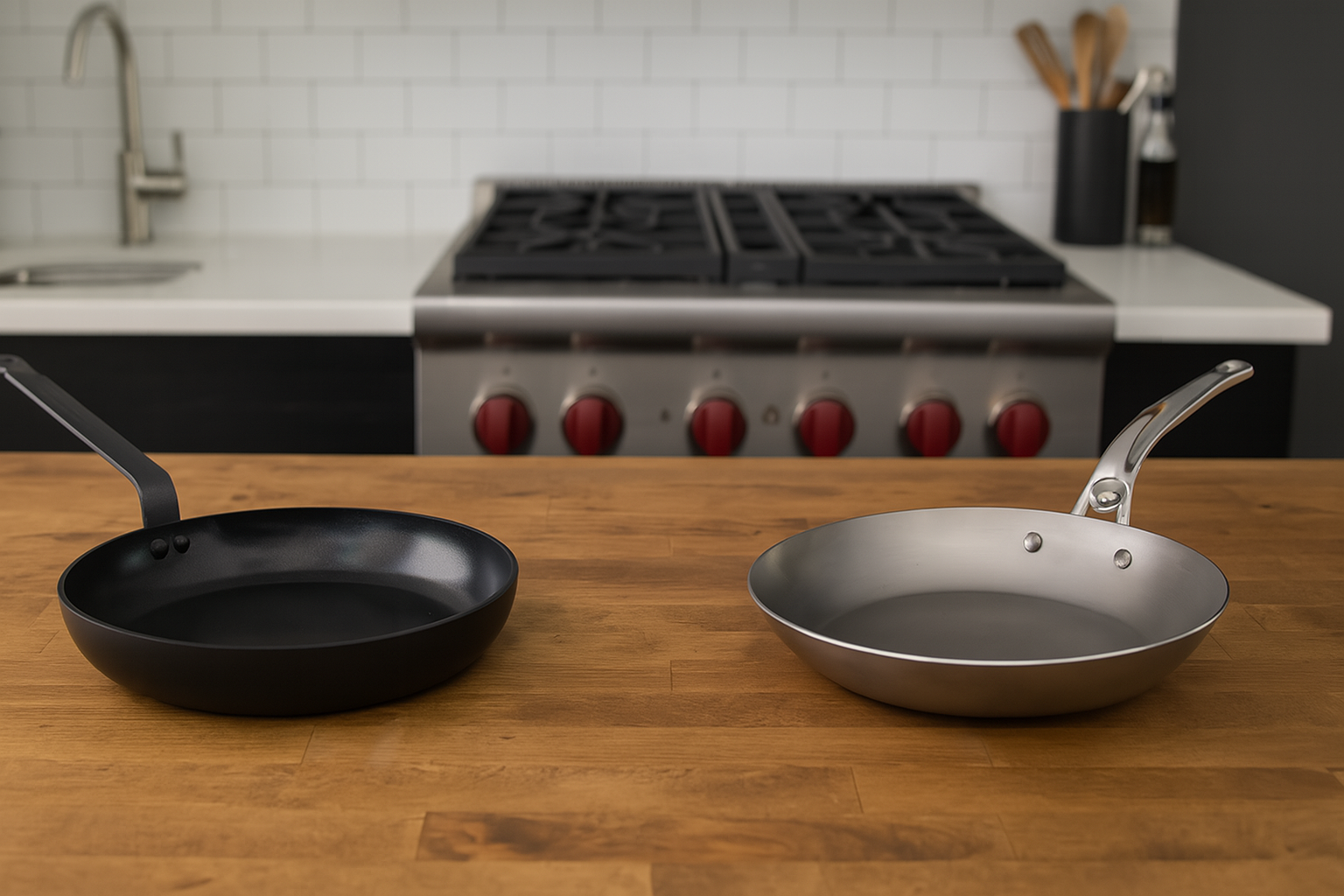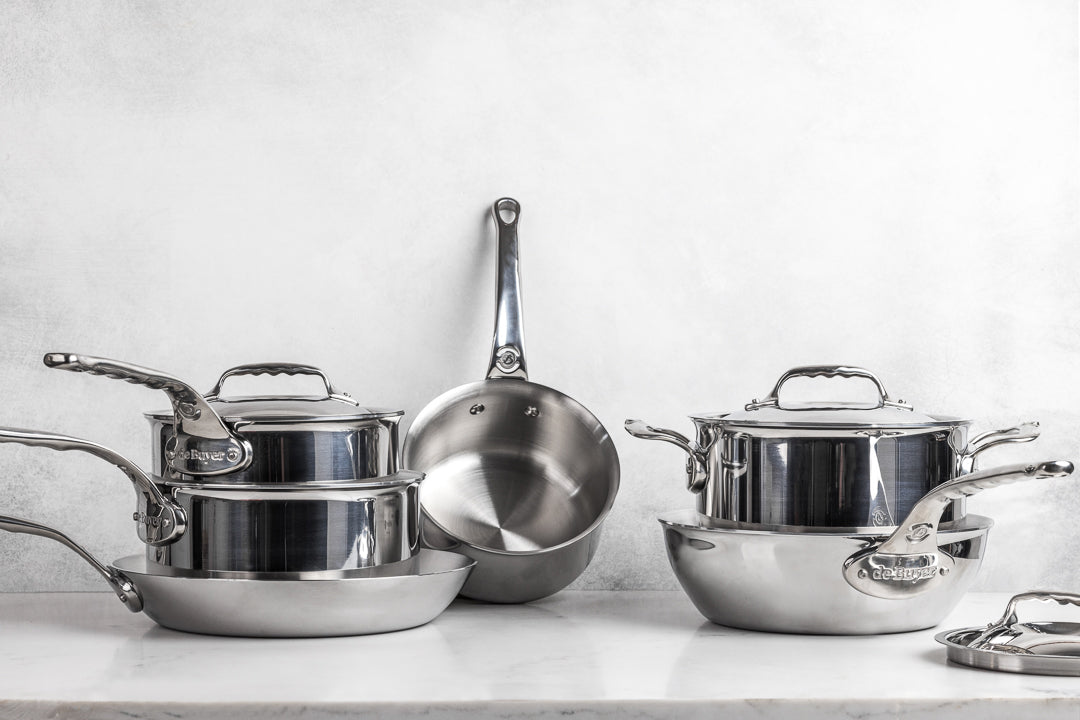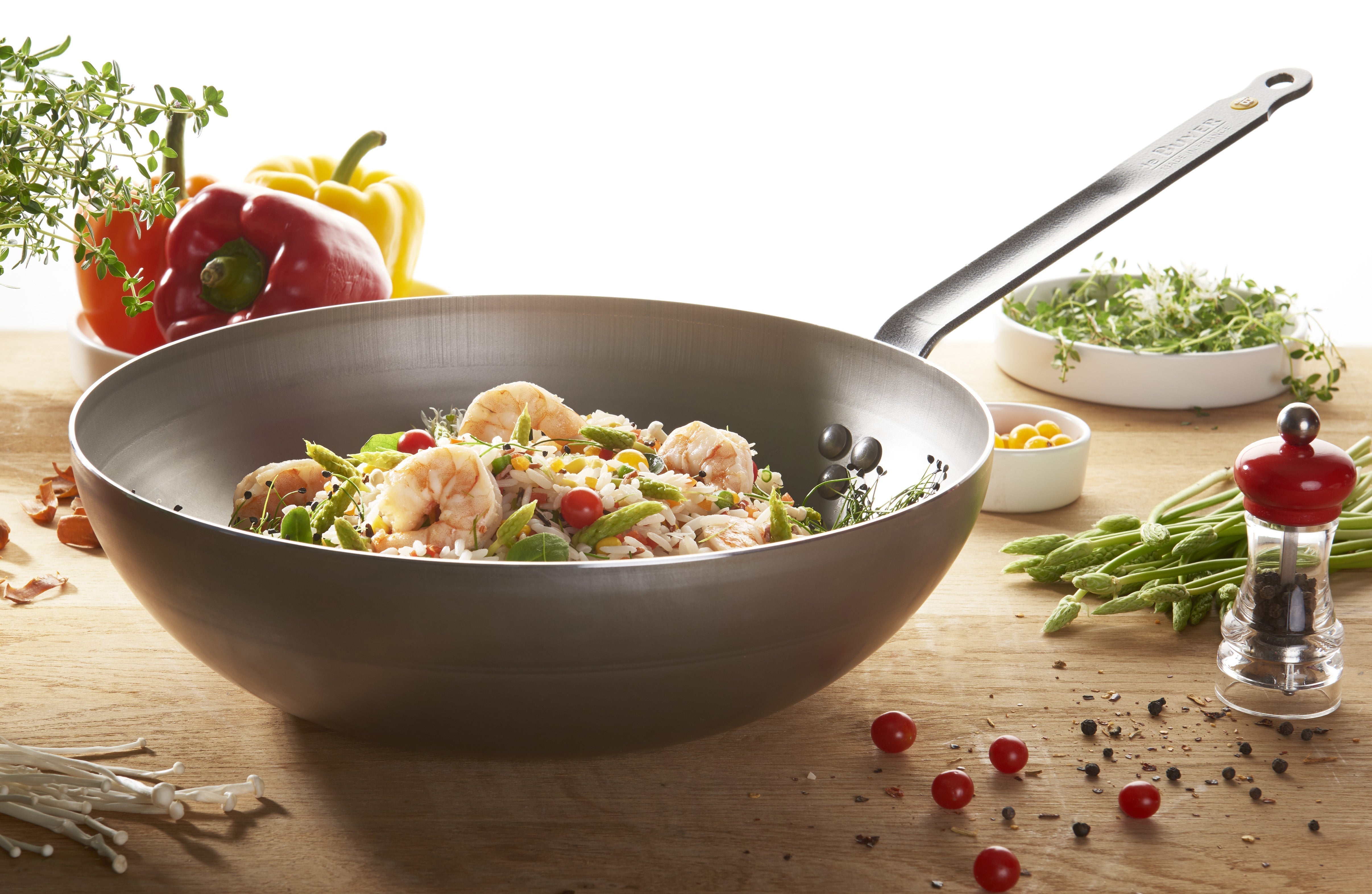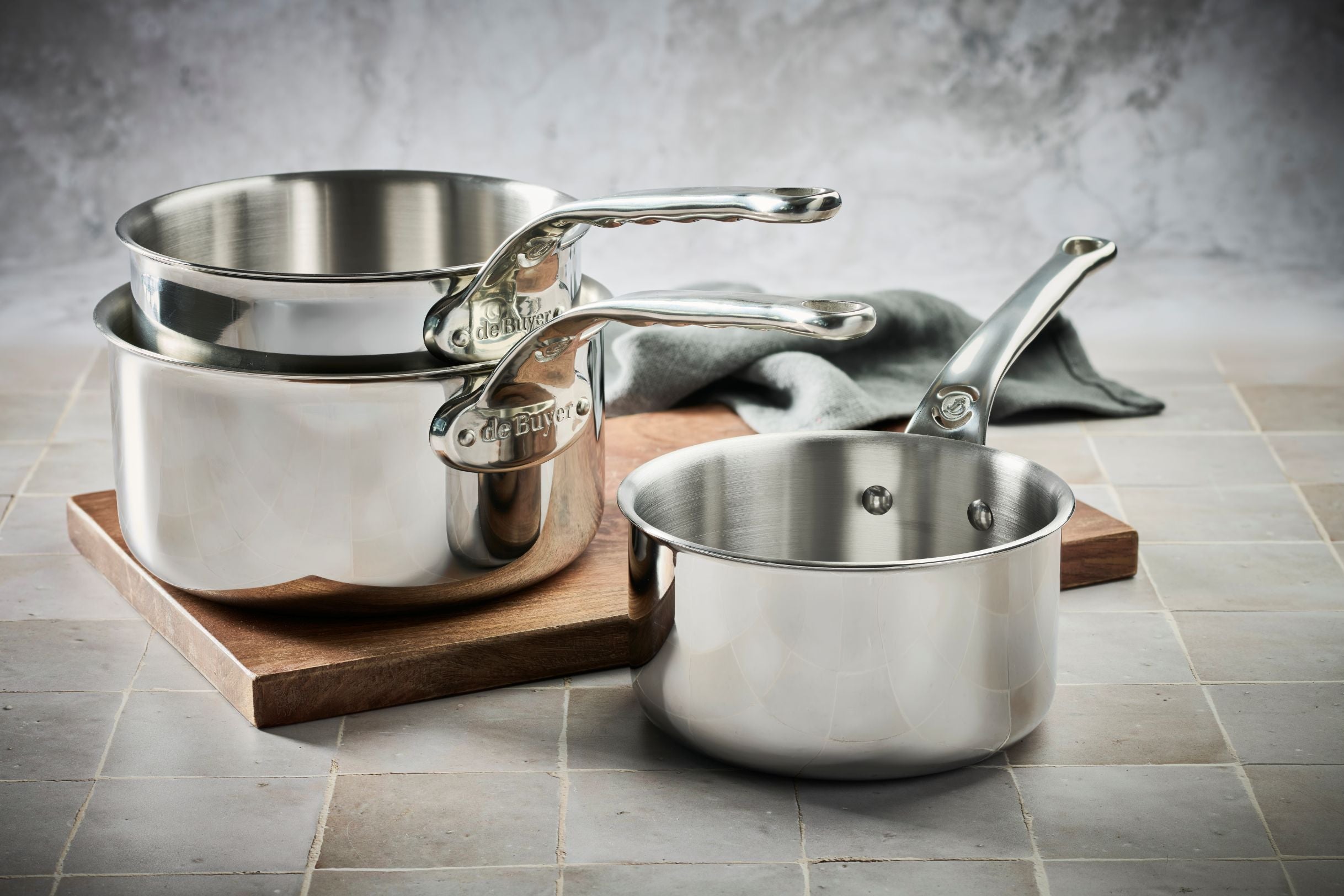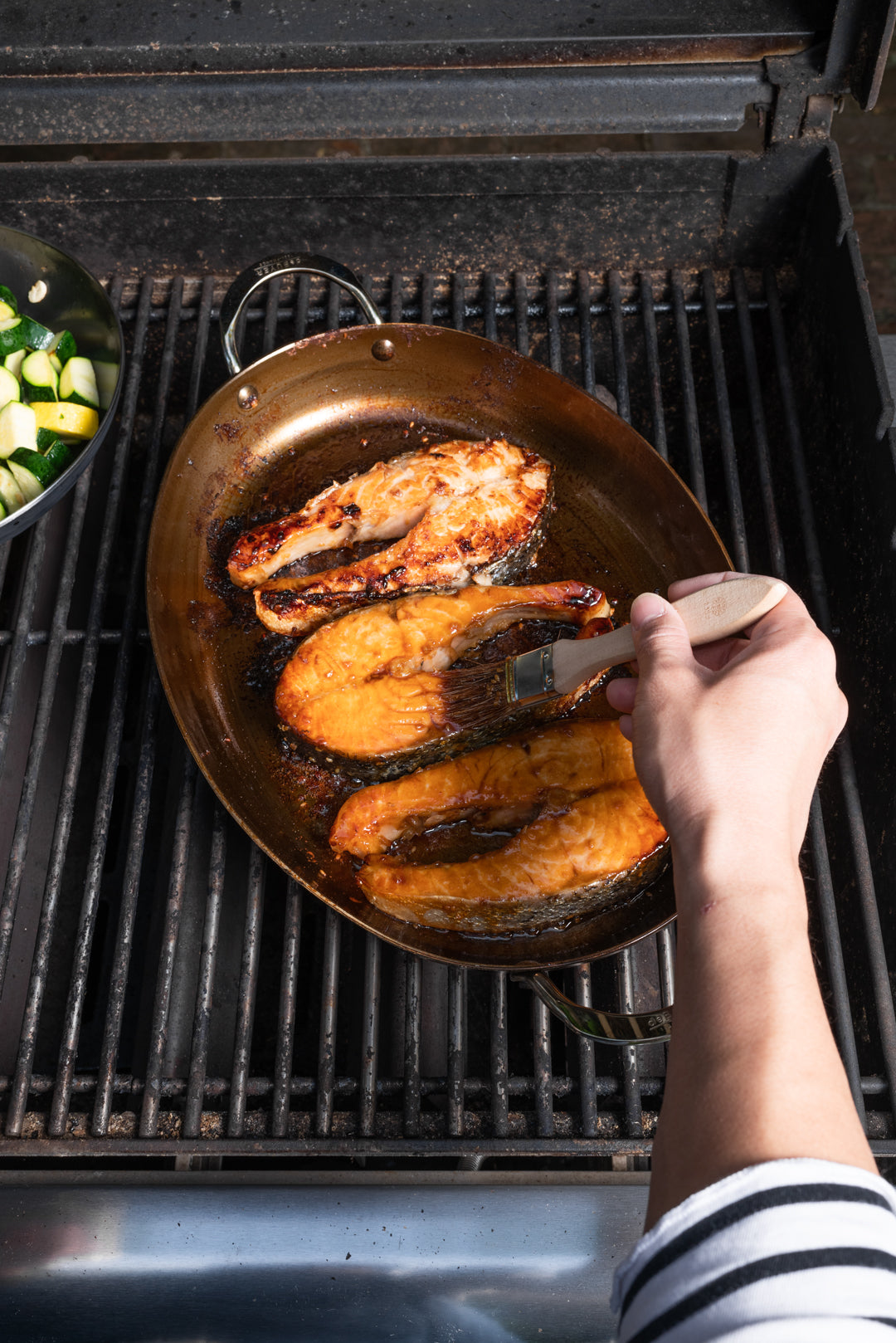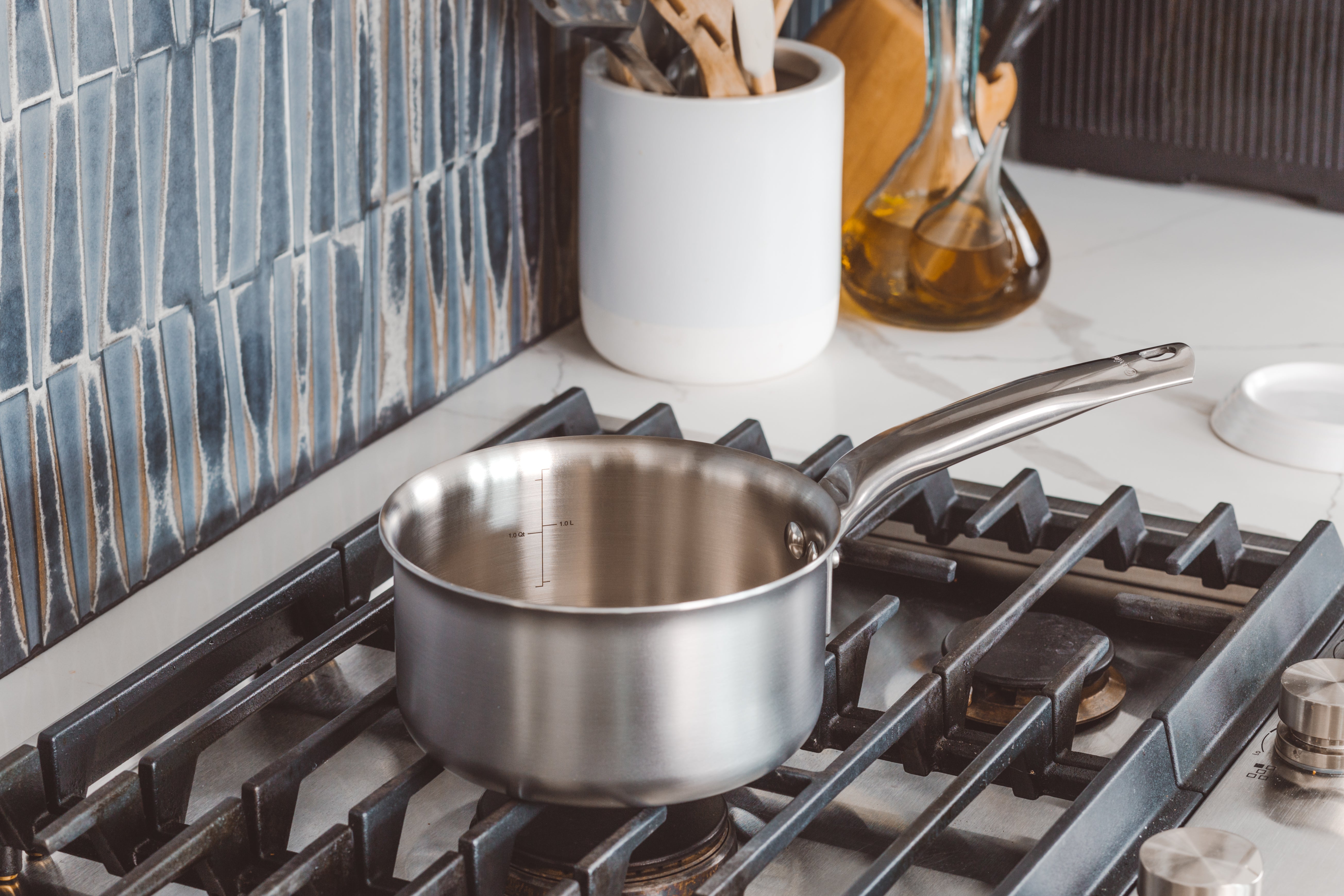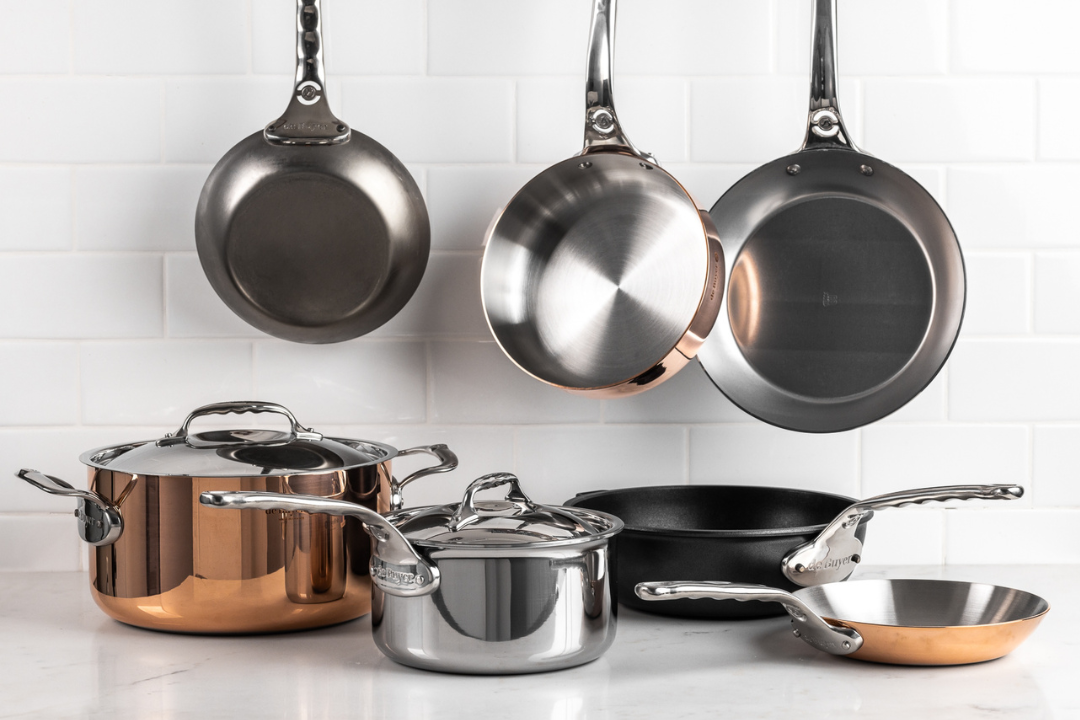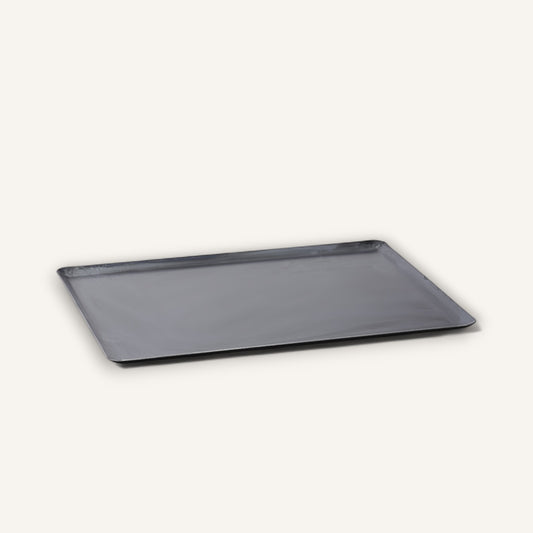Seasoning and maintaining carbon steel pans with the right oil not only enhances the nonstick properties of the pan but also ensures long-term durability and cooking performance. An improper oil can have devastating effects on your cooking and the integrity of the pan. Even long-time carbon steel pan owners can use a reminder of which seasoning oils are best and why.
This article provides recommendations for the best oils for carbon steel pans that are healthy, won't damage the pan, and will help avoid common mistakes like overheating.
Why Choosing the Right Oil Matters for Carbon Steel Pans
Seasoned carbon steel pans become naturally nonstick and the more they’re used, the better they get. Oil is an integral part of the seasoning process and your oil of choice really matters. This oil will help to build and maintain the nonstick surface.
Different oils polymerize in unique ways and either create a durable coating on the pan or fail to do so efficiently. The wrong oil, especially those with low smoke points, can lead to uneven seasoning or cause the oil to burn, damaging the pan’s surface.
This damage isn't permanent since carbon steel is a near-indestructible kitchen tool. However, your pan won't be seasoned properly, and you'll have to start over. If you don't start over, then your food could stick or have a funky taste, and the seasoning won't get better with use like it typically does when properly seasoned.
Healthy Oils for Seasoning Carbon Steel Pans
Seasoning carbon steel, or seasoning cast iron, requires a thin layer of premier oil that has a high smoke point. A smoke point is the temperature at which an oil starts to smoke, indicating that it's breaking down. Since proper seasoning requires at least medium-high heat, all the following oils have a smoke point of at least 375°F.
Here is a list of the best oils for seasoning carbon steel pans, their health benefits, and why they work so well for this purpose.
-
Grapeseed oil
-
Grapeseed oil has a smoke point of 421°F, which makes it great for high-heat cooking. Its mild flavor and ability to create a strong seasoning layer without compromising health (i.e., it only has a 9% saturated fat content) make it an excellent choice.
-
Canola oil
- Canola oil is the most affordable and widely available option on this list. It has a mild flavor and is well suited to seasoning and general cooking, making it a good all-around oil option. It has a high polyunsaturated fat content but is 10% omega-3, so the nutritional content is suitable.
-
Avocado oil
- Avocado oil is a healthy option with a similar nutritional content to olive oil but with a much higher smoke point (520°F), making it ideal for both seasoning and cooking. Between the mild flavor and rich monounsaturated fats content, pure avocado oil is an excellent option.
-
Vegetable oil
- While vegetable oil is a common option for seasoning, it’s not as healthy as some of the other oils mentioned. Still, it works well for high-heat cooking due to its higher smoke point and cheap cost.
Oils to Avoid for Carbon Steel Pans
These are the oils that should not be used for seasoning carbon steel pans due to their low smoke points or tendency to create sticky or uneven surfaces. Many of these oils are less healthy or come with a strong taste that can influence later cooking.
Some oils not mentioned due to their lack of commonality and/or price include peanut oil, corn oil, soybean oil, and sunflower oil. Avoid seasoning carbon steel and cast iron pans with these oils.
-
Olive oil
- While olive oil is a healthy oil, it’s not ideal for seasoning carbon steel pans because it has a lower smoke point and doesn’t form the strong, durable seasoning layer that other oils do. Extra virgin olive oil, the highest grade of olive oil, is better used for cooking at lower temperatures.
-
Flaxseed oil
- Flaxseed oil is considered one of the best finishing oils due to its high omega-3 content and nutritional content, including protein and fiber.
- It has a low smoke point, around 225°F, so this oil is best used for topping off salads and in nut butter, not for seasoning carbon steel.
-
Butter and margarine
- Avoid butter and margarine for seasoning because they contain water and milk solids, which can cause uneven seasoning or lead to a sticky surface. Clarified butter (butter with milk solids and water removed) has a much higher smoke point of 482°F; however, the strong butter taste will linger on the pan and affect all further cooking.
-
Coconut oil
- Though coconut oil has a high smoke point, it can leave a thicker layer of seasoning that may be too heavy and is difficult to work with. It doesn’t polymerize as well as other oils and has a stronger taste.
The Proper Seasoning Process for Carbon Steel Pans
Use these seasoning instructions to prepare carbon steel cookware for regular use.
Stovetop Method
-
Step 1: Clean the pan with hot water and remove the beeswax coatings or impurities
-
Step 2: Dry the pan thoroughly to avoid rust
-
Step 3: Apply a thin, even layer of your chosen oil over the entire surface using a paper towel or cloth
-
Step 4: Heat the pan on medium heat until the oil begins to smoke, then allow it to cool
-
Step 5: Repeat the process 1-3 times for best results
Oven Method
-
Step 1: Clean the pan with hot water and remove the beeswax coatings or impurities
-
Step 2: Dry the pan thoroughly to avoid rust
-
Step 3: Preheat oven to 375°F
-
Step 4: Use a paper towel to rub a thin layer of oil all over the inside and outside of the pan
-
Step 4: Place the pan in the oven upside down and bake for 1 hour
-
Step 5: Turn the oven off and let the pan cool for 15-30 minutes before removing
Congratulations! Now you can start cooking with your new protective coating.
Common Mistakes to Avoid When Seasoning with Oil
Here are a few of the common mistakes people typically make when seasoning carbon steel pans and how to avoid them.
-
Using Too Much Oil: More is not better when it comes to seasoning. A thin layer of oil is crucial to prevent a sticky surface. The exact amount of oil depends on the size of your pan, but try starting with less than a teaspoon.
-
Not Preheating the Pan Properly: You have to let the oil reach the right temperature, medium-high, without spiking the heat. Don’t flame the pan and rush the process.
-
Skipping the Cool Down: It takes a lot longer than you’d think to cool down a carbon steel pan. This material is excellent at retaining heat, so leave it out on the counter or a cool part of your stove for at least 30 minutes.
Maintaining Your Seasoned Carbon Steel Pan
Here are some tips on maintaining the seasoning of the pan.
- Clean the pan using hot water and a soft brush—avoid soap, which can strip the seasoning
- After each cleaning, dry the pan thoroughly and apply a thin layer of oil to protect against rust
- Regular use of the pan will improve the seasoning over time, creating a natural nonstick surface
-
You can use methods like salt scrubbing or a gentle scour to get rid of tough stains and boost the longevity of your carbon steel pan
Enhance Your Cooking Experience with de Buyer
Choosing the right oil for seasoning carbon steel pans enhances cooking performance and maintains longevity. Explore de Buyer’s high-quality carbon steel pans, such as the Mineral B Pro Carbon Steel Fry Pan and Blue Carbon Steel Fry Pan, for a superior cooking experience.
If you're looking for more premium pans, browse de Buyer’s selection of carbon steel cookware and other premier cooking tools to elevate your culinary experience.
